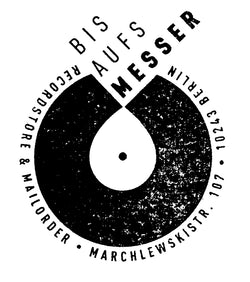Nahawa Doumbia is one of Mali's defining vocalists of the last four decades. Her work journeys through progressive stages of musical evolution and sonic vogues, making it hard to summarize or even comprehend. She's played a part in popular music since the late ‘70s, as her version of Wassoulou music developed from vocals-and-guitar duo into full-scale touring bands packing a bombastic, electrified punch. As Doumbia puts it, "My music has changed multiple times to this day…The more I progressed in my musical career, the more instruments I have had accompany my songs."
La Grande Cantatrice Malienne Vol 1 looks back to the beginning of Doumbia’s long career, when her voice was remarkably strong yet still developing. This was before she added bass and percussion, and finally the electric guitar and synths for which she became known in recent years.
She'd been singing traditional music since her early teens in Bougouni. Doumbia performed with cultural troupes throughout her youth and gained the notice of Radio Mali officials who entered her in a Radio France International contest, Découverte 81 á Dakar, which she won. Whether she knew it or not, as a young lady from a town many hours from Mali’s capital Bamako, she was destined for a worldwide touring career at the vanguard of Malian popular music.
Released in 1981 by the excellent Côte d’Ivoire-based AS Records, the singer was barely 20 years old when it was recorded. She was accompanied by her future husband N’Gou Bagayoko on acoustic guitar, whose style echoes the nimble runs of traditional kamele n’goni players. The stark simplicity of this highly intimate recording—the audible room acoustics, the occasionally in-the-red vocals—do not obscure the mature strength of her voice. On Vol 1 Doumbia performs her songs with the tenacity and hunger of a young artist on the cusp.
"When I think about it, first, I am reminded of how long ago it was. It's one of the albums that I love most because it reminds me of my youth. I was so young and my voice was light and joyful. I still listen to some of those songs today. I am really proud of that first album because that’s where it all began. It shows me how far I’ve come in my personal and artistic life; it gives me the courage I need to keep going forward, and makes me appreciate all the years of dedication and hard work I put into my musical career.
"
These early songs are rhythmically built around Bagayoko's sensitive guitar, as his fingers brush the fretboard and gently outline the melodies. Although this record predates the singer’s use of percussion, the driving skeletal didadi rhythm is apparent in the songs. Later albums like Vol 3 further prioritize her hometown didadi beat and the result made her famous.
Cookies
Wir verwenden Cookies. Viele sind notwendig, um die Website und ihre Funktionen zu betreiben, andere sind für statistische oder Marketingzwecke. Mit der Entscheidung "Nur essentielle Cookies akzeptieren" werden wir Ihre Privatsphäre respektieren und keine Cookies setzen, die nicht für den Betrieb der Seite notwendig sind.
Essenzielle
Statistik & Marketing
Alle akzeptieren
Nur Essentielle Cookies akzeptieren
Individuelle Cookie Einstellungen
Speichern & schließen
Essenzielle
Essenzielle Cookies ermöglichen grundlegende Funktionen und sind für die einwandfreie Funktion der Website erforderlich.
Informationen anzeigen
Statistik & Marketing
Marketing-Cookies werden von Drittanbietern oder Publishern verwendet, um personalisierte Werbung anzuzeigen. Sie tun dies, indem sie Besucher über Websites hinweg verfolgen.

